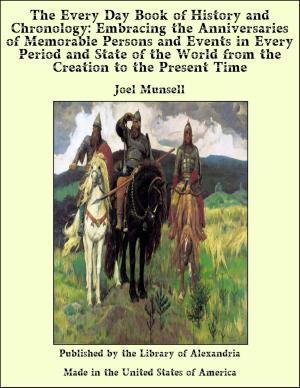Buddhism in Translations
Nonfiction, Religion & Spirituality, New Age, History, Fiction & Literature| Author: | Henry Clarke Warren | ISBN: | 9781465573063 |
| Publisher: | Library of Alexandria | Publication: | March 8, 2015 |
| Imprint: | Language: | English |
| Author: | Henry Clarke Warren |
| ISBN: | 9781465573063 |
| Publisher: | Library of Alexandria |
| Publication: | March 8, 2015 |
| Imprint: | |
| Language: | English |
THE materials for this book are drawn ultimately from the Pâli writings of Ceylon and Burma,--that is to say, they are to be found in palm-leaf manuscripts of those countries, written in the Singhalese or Burmese alphabet, as the case may be, but always in the same Pâli language, a tongue very nearly akin to the Sanskrit. These Pâli writings furnish the most authoritative account of The Buddha and his Doctrine that we have; and it is therefore to be regretted that, inasmuch as so little has been known in the Occident until recently of either Pâli or Pâli literature, the information of the public concerning Buddhism has been so largely drawn from books based on other, non-Pâli, sources, on works written in the Singhalese, Chinese, and Tibetan languages, and in the Buddhist-Sanskrit of Nepaul. But a large number of Pâli manuscripts have now been edited and printed in the publications of the Pâli Text Society of London, and in scattered works both in England and in other European countries, and several volumes of translations into English have appeared, so that all excuse for not deriving our knowledge of Buddhism from the most authentic sources is fast disappearing.
THE materials for this book are drawn ultimately from the Pâli writings of Ceylon and Burma,--that is to say, they are to be found in palm-leaf manuscripts of those countries, written in the Singhalese or Burmese alphabet, as the case may be, but always in the same Pâli language, a tongue very nearly akin to the Sanskrit. These Pâli writings furnish the most authoritative account of The Buddha and his Doctrine that we have; and it is therefore to be regretted that, inasmuch as so little has been known in the Occident until recently of either Pâli or Pâli literature, the information of the public concerning Buddhism has been so largely drawn from books based on other, non-Pâli, sources, on works written in the Singhalese, Chinese, and Tibetan languages, and in the Buddhist-Sanskrit of Nepaul. But a large number of Pâli manuscripts have now been edited and printed in the publications of the Pâli Text Society of London, and in scattered works both in England and in other European countries, and several volumes of translations into English have appeared, so that all excuse for not deriving our knowledge of Buddhism from the most authentic sources is fast disappearing.















